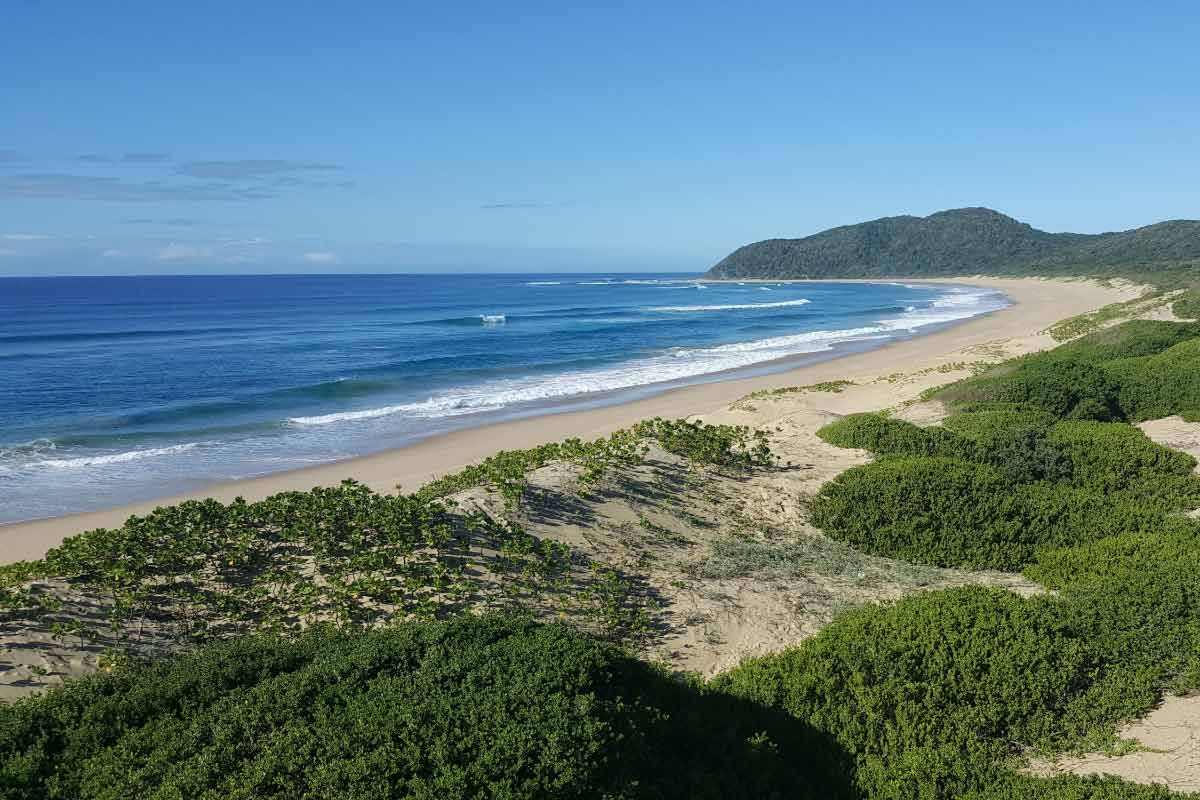The project “CoastWise – Improving knowledge for integrated management of the land-sea interface in South Africa” was introduced on June 18 as part of a webinar series featuring each of the 12 MeerWissen projects. The webinar highlighted the project stages from defining knowledge gaps and generating biodiversity data for the implementation of a new integrated coastal and marine assessment and spatial plan.
Dr. Kira Gee, Helmholtz-Zentrum Hereon, introduced the audience to the project’s objectives that are all pointing towards developing enhanced coastal assessment and management in South Africa. Five partner institutions are collaborating to identify gaps and needs for better integrated coastal assessment and prioritisation. Together, they will develop new data layers for planning, use innovative digital solutions such as machine learning, and produce digital outreach tools to translate scientific outcomes to decision-makers. The project also stands out by explicitly taking into account the benefits and values that local communities and stakeholders assign to coastal ecosystems and their services.
Until recently, many assessments and management plans in South Africa consider the ocean and coast and key inter-related components within these as separate systems, missing the land-sea interaction. A National Biodiversity Assessment (NBA) is conducted in collaboration with a number of research institutes and NGOs. Prof. Kerry Sink, representing the South African National Biodiversity Institute (SANBI), explained that CoastWise will be part of this effort, focusing on benefits of biodiversity, classification and assessment of ecosystem types as key elements of the NBA. As a result, the project will distil priority actions and main knowledge gaps to the stakeholders and decision makers. This will particularly contribute to and improve the newly added cross-realm coastal assessment as part of the NBA.
Dr. Linda Harris, Institute for Coastal and Marine Research (CMR), Nelson Mandela University (NMU), introduced the MARXAN software that is applied to identify coastal and marine critical biodiversity areas (CBAs) and ecological support areas (ESAs), indicating a need for conservation. Producing these maps revealed that there is a need for higher resolution data and planning to ensure better alignment of CBAs across the land-sea interface, and a dedicated prioritization for estuaries, both of which will be addressed in CoastWise. Dr. Lara van Niekerk, Council for Scientific and Industrial Research (CSIR), presented the use of high-resolution remote sensing technology that will be applied to observe the fresh-water plumes in coastal ecosystems and improve estuary pressure and habitat data. Dr. Maya Pfaff, from the Department of Forestry, Fisheries and the Environment (DFFE), highlighted that the CoastWise project links Computer Vision Experts with Marine Scientists to develop algorithms and workflows to automate the processing of images from biodiversity surveys to be more effective both in terms of cost and time. These data will later be the basis for an enhanced NBA and higher resolution coastal ecosystem maps.
The development of new strategies to map marine and coastal ecosystem services is another objective, explained Myriam Perschke, CMR-NMU / SANBI. In the Ecological Infrastructure (EI) approach, different ecosystem services are allocated to ecosystem types, delivering service hotspots. Megan van der Bank, SANBI, pointed out that the services defined are not only based on ecological or economic values, but include socio-cultural values, and these will be mapped to potentially include the values and knowledge of diverse stakeholders. An innovative output of the project will be descriptions and maps of culturally significant areas. Last not least, Robyn Adams presented the MzanSea project, which is a designated ocean literacy and outreach initiative that is being used to communicate some of the new knowledge gained in CoastWise.
Despite the ongoing Covid restrictions, the team is looking forward to progressing this work and to establish connections with other MeerWissen projects.


